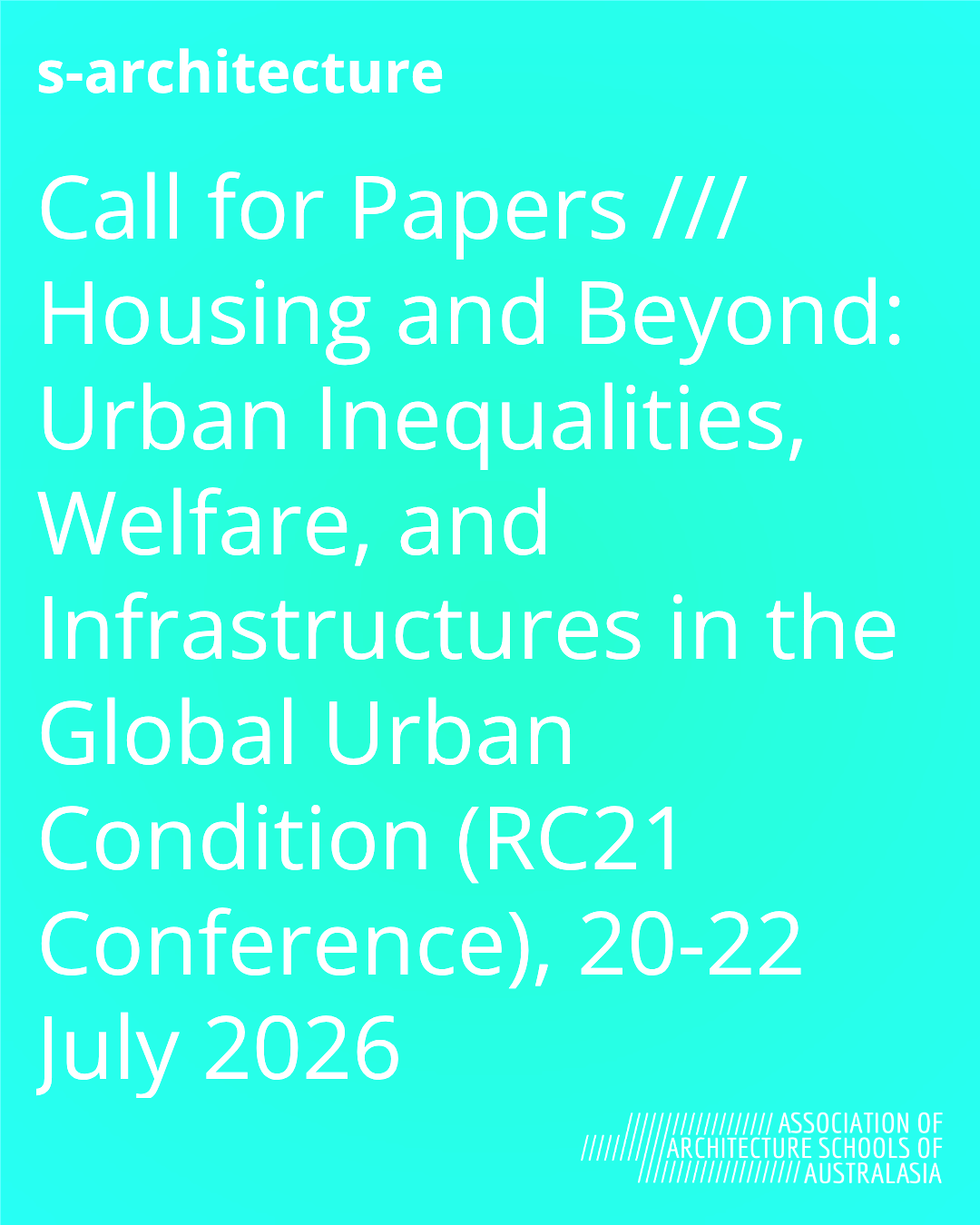Call for Papers /// Housing and Beyond: Urban Inequalities, Welfare, and Infrastructures in the Global Urban Condition (RC21 Conference), 20-22 July 2026
- Nov 17, 2025
- 4 min read

Call for abstracts – RC21 Conference, Vienna 2026
We warmly invite abstract submissions for our session Housing and Beyond: Urban Inequalities, Welfare, and Infrastructures in the Global Urban Condition at the RC21 Conference, taking place in
Vienna, July 20–22, 2026.
Please see below our session description.
For submission guidelines, please check: https://rc21-vienna2026.org/call-for-abstracts/
Deadline for abstract submissions: December 29th, 2025Notification of acceptance: January 29th, 2026
SESSION #69: Housing and Beyond: Urban Inequalities, Welfare, and Infrastructures in the Global Urban Condition
Session chair(s):
Dr Dhara Patel (Institute of Sociology, Technical University Darmstadt),
Dr Claudia Ba (Institute of Sociology, Technical University Darmstadt)
Format type:
Regular Panel
Description:
Urban inequalities persist in city-making, but they take on renewed intensity in contexts shaped by transnational migration, welfare retrenchment, and neoliberal governance. Housing, as both a commodity and a right, remains a central arena where inequalities are materialised: from exclusionary rental markets to the financialisation of urban property. Yet inequalities extend beyond housing, embedded in social infrastructures, welfare regimes, and urban imaginaries that structure access, belonging, and mobility.
This session invites contributions that interrogate the relational and transnational production of urban inequality. We ask:
• Migration, mobility, and imaginaries of home: How do North and South cities become interconnected through migration, investment, and knowledge flows, producing new hierarchies of class, race, gender, and status? How do different forms of mobility—South–South and North–South, cyclical or return migration, forced displacement and refuge—shape experiences of arrival, settlement, and belonging? In what ways do diasporic imaginaries of “home” and “homeland” materialise in urban environments and influence nation-state projects?
• Concepts of arrival and home: Which actors (state institutions, migrant organisations, civil society) mobilise notions of “arrival” and “home,” and to what ends? How do these concepts stabilise locally specific claims while also reproducing globally circulating categories of sameness and difference?
• The productivity of inequality: In what ways are inequalities not only reproduced but also productive, structuring urban aspirations, mobilities, and exclusions? How do welfare regimes, housing systems, and governance models across varied contexts manage—or actively generate—new urban inequalities?
• Beyond housing: infrastructures and welfare: How do infrastructures of arrival (healthcare, education, transport, civic institutions) and welfare regimes intersect with housing to shape belonging and exclusion? Do they mitigate inequalities, or reinforce them across North–South contexts?
We seek papers that mobilise critical and creative frameworks as well as methodological reflections to interrogate urban inequality as more than an outcome of uneven development: as a force that actively shapes urban futures. Approaches such as postcolonial urbanism (Roy 2011) unsettle universalist models of the city, foregrounding how Southern experiences reconfigure theory. Racial capitalism (Robinson 1983; Kelley 2017) highlights the entanglement of economic exploitation with racialised and other forms of difference, showing inequality is structurally generative, not incidental.
Neoliberalism as exception (Ong 2006) draws attention to how states selectively suspend or reinvent rules to produce new zones of inclusion and exclusion. Concepts such as the Capability Approach (Sen, 2001) critically address the tropes of ‘the good life’, well-being, and Urban Quality of Life (uQoL), informing understandings of urban housing markets and global individual possibilities. Together, these perspectives invite us to rethink inequality not as residual or pathological, but as a constitutive logic of contemporary urbanism—a logic that links North and South, South and South, past and present, revealing persistent (neo)coloniality embedded in governance, infrastructures, and everyday urban life.
By foregrounding housing, infrastructures of arrival, migration trajectories and transnational movements as key sites of inquiry, this panel invites comparative, transdisciplinary, historical, and ethnographic contributions that examine how old inequalities persist while new ones are forged, producing cities as contested terrains of exclusion and justice.
Best
Dhara & Claudia
Dr. Dhara Patel
Architect & Postdoctoral Research Fellow
(B.Arch with Honours, P.hD. Architecture Building and Planning)
Project Lead/ Projektleiterin (DFG funded project) – New Homes in New Lands: Socio-Spatial Negotiations of Highly Skilled Indian Migrants in Frankfurt a.M.
“Neo-Colonial Narratives in Modern Migration: Housing Practices and Class Dynamics of Indian Migrants in Frankfurt,”Current Sociology, Online First (2025).https://doi.org/10.1177/00113921251383400
Technische Universität Darmstadt
Institut für Soziologie I Institute for Sociology
Stadt- und Raumsoziologie | Urban Sociology and Sociology of Space
Tel. 06151/16-57499
Postadresse:
Marktplatz 15, 64283 Darmstadt
Besuchsadressse:
Gebäude S3/13, Raum 309Residenzschloss, Marktplatz 15D-64283 Darmstadt
s-architecture is intended for scholars of Architecture (academe, practice, students, and the public). The list posts scholarship and grant opportunities, academic jobs, calls for papers, notices of conferences which will be of interest to academic staff, postgraduate students, and those in the profession with a scholarly turn of mind.
This blog/email and any attachments are confidential and intended solely for the recipient(s) listed. If you are not the intended recipient, please notify the sender immediately and delete this email. Any unauthorised review, use, disclosure, or distribution is strictly prohibited. While we take precautions to protect against viruses and malware, we cannot guarantee that this email is free from harmful elements. The views expressed in this email do not necessarily reflect those of s-architecture or the Association of Architecture Schools of Australasia (AASA).



